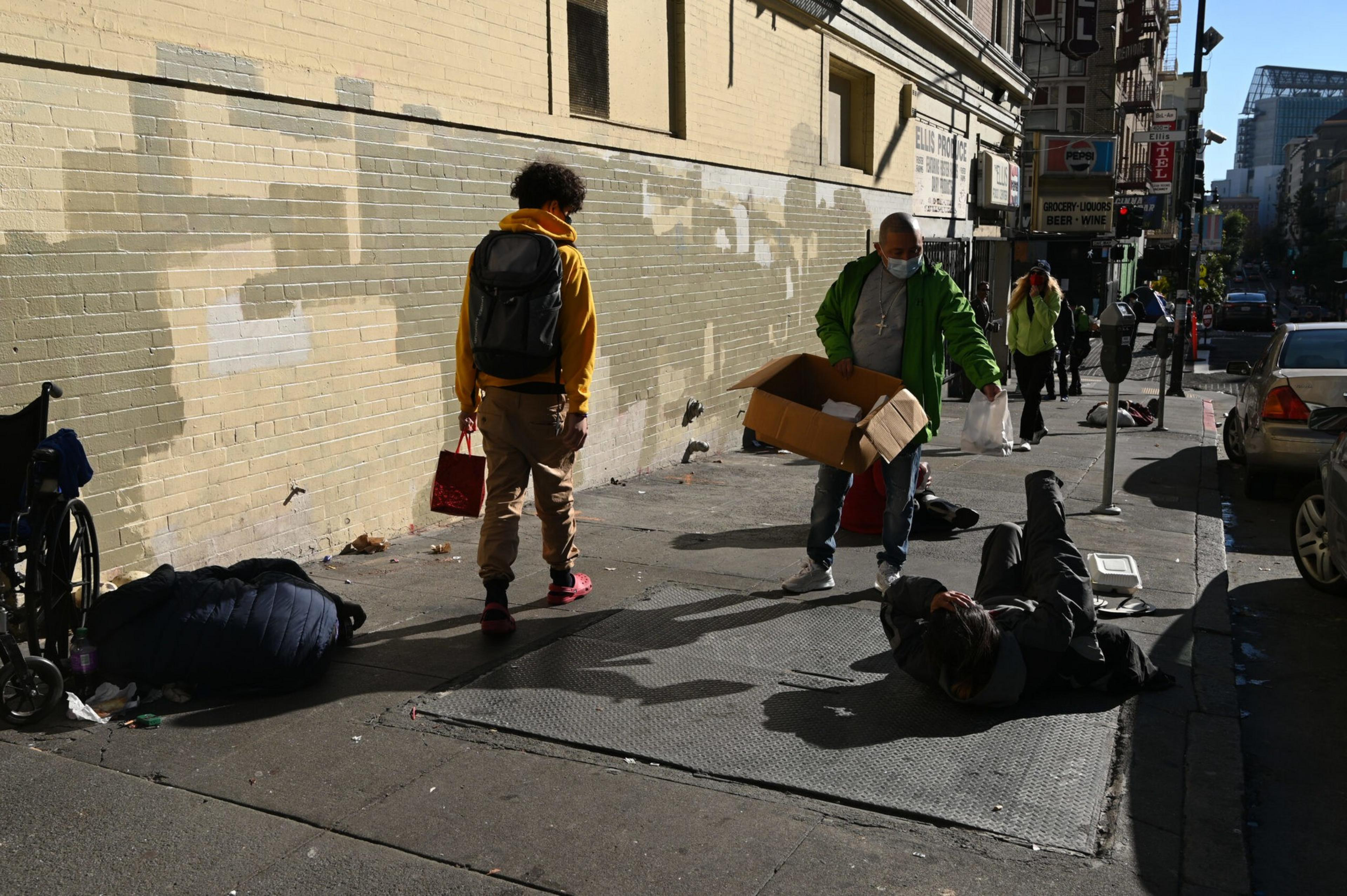The Department of Public Health said on Friday that it’s hired 204 health care workers, filling what officials see as an acute need as the city grapples with an ongoing overdose crisis.
A number of those new employees will help staff a respite facility called the Linkage Center in the city’s mid-Market area, the department said. The center opened in January as the centerpiece of Mayor London Breed’s emergency plan to address the city’s drug overdose epidemic, but has since drawn scrutiny for an apparently small number of linkages to substance use treatment. In the last two weeks of available data, only six guests at the linkage center completed connections to substance use treatment.
The city is now “staffed up to a level that can begin to address the scale of need we see in our communities around mental health and substance use,” said Dr. Hillary Kunins, behavioral health lead at the public health department, in a press release on Friday.
The department said that Breed’s emergency declaration in December made it possible to expedite and simplify hiring, helping to eliminate redundancies in onboarding new workers.
In the first two months of the year, 98 people in San Francisco died from overdoses (opens in new tab). Meanwhile, the city has struggled to urge people with behavioral health or addiction issues into effective treatment, despite thousands of crisis calls among various city departments. The Street Crisis Response Team, a cross-departmental pilot program that responds to non-violent 911 mental health calls, responded to 1,489 calls in the first two months of this year. Data from the program shows mixed results in connecting those clients (opens in new tab) to care.
Supervisors point to a lack of treatment beds and behavioral health specialists as a primary reason for the city’s failures.
Matt Haney, District 6 supervisor, told The Standard that he’s pleased the emergency ordinance resulted in new hires, but expressed frustration that it took the public health department so long to react to the crisis on the streets.
“They still have a lot of vacancies,” Haney said. “I don’t think it should’ve taken a declared state of emergency to do the basic essential functions of a department in terms of hiring people when positions are funded, delivering services and following the law.”
As well as assisting with operations at the Linkage Center, some of the new behavioral health clinicians, pharmacists and health workers will work to launch a goal of the Mental Health SF initiative (opens in new tab): an office of coordinated care intended to provide a single access point for people in crisis.
There are currently 500 beds in the city’s addiction treatment network and 172 total mental health treatment beds, according to the Department of Public Health’s treatment dashboard. (opens in new tab)Seventy of the city’s addiction treatment beds and 33 of the mental health treatment beds were open at the time this story was published.
“I support the Linkage Center, but I’m also hearing that it’s not bringing people into that next level of care that they need,” Haney said. “San Francisco cannot continue to cycle people in and out of emergency rooms onto the street and back again. It’s a waste of money and it has been a total failure.”
